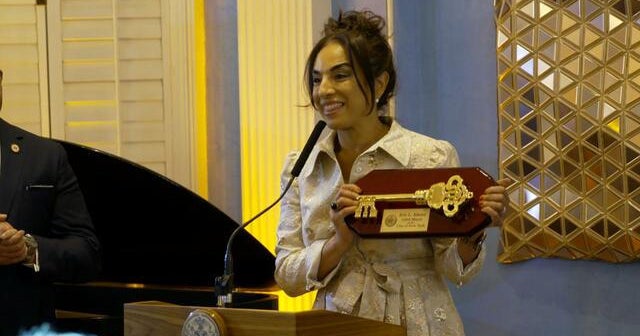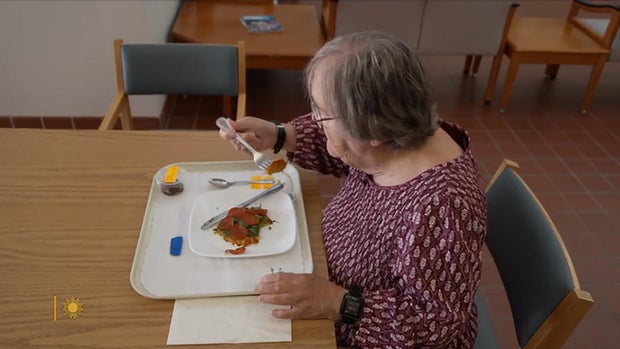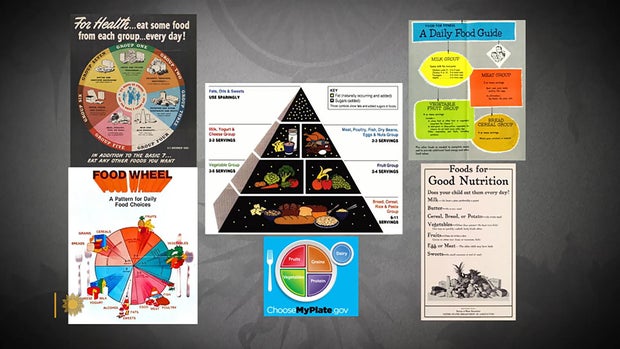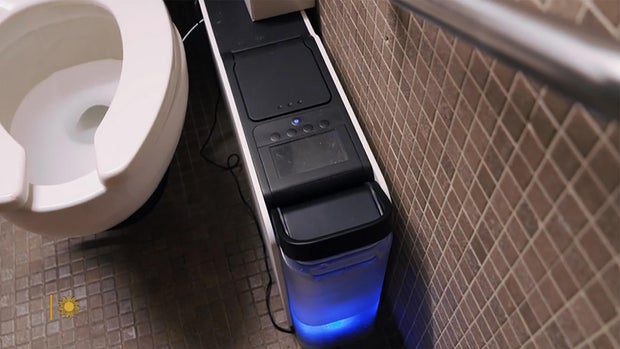CBS News
Democratic New York state Sen. Tim Kennedy wins seat in Congress in special election
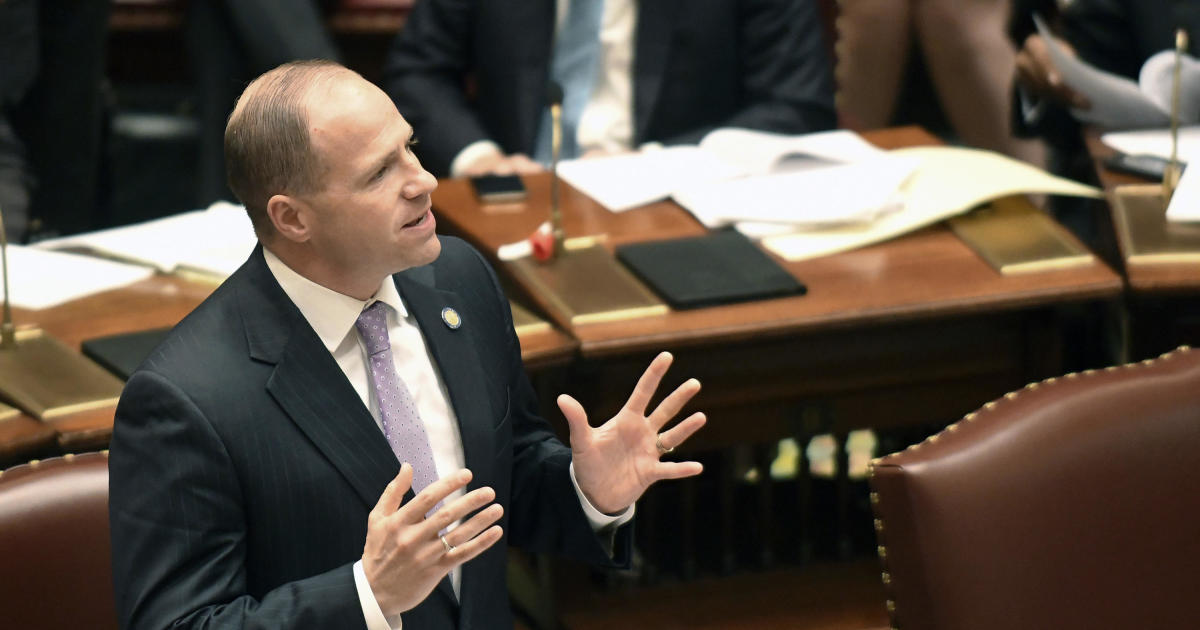
Hans Pennink / AP
Democratic state Sen. Timothy Kennedy on Tuesday won a special election for the New York congressional seat vacated by Democrat Brian Higgins.
Kennedy easily beat Republican Gary Dickson for the upstate New York seat, helped by a 2-to-1 Democratic registration advantage in the district, which includes Buffalo, Niagara Falls and several suburbs.
Kennedy has been in the state Senate since 2011. Describing Washington as “chaotic and dysfunctional,” he said he said that in Congress, he’d focus on reproductive rights, immigration and stronger gun laws like those passed in New York after a 2022 mass shooting at a Buffalo supermarket.
“We need to elect pro-democracy, anti-MAGA candidates all around the country this November,” Kennedy said in a victory speech, “and it starts here in this room in Buffalo, New York, tonight.”
Registration wasn’t Kennedy’s only advantage. The Democrat raised $1.7 million as of April 10, compared with Dickson’s $35,430 total, according to campaign finance reports. Kennedy spent just over $1 million in the off-season election, compared with $21,000 for Dickson as the candidates worked to remind voters to go to the polls.
Kennedy will serve in Congress for the rest of the year. He is on the ballot, along with Republican attorney Anthony Marecki, for the general election this fall. On Tuesday, former town supervisor Nate McMurray, who planned to challenge Kennedy in a Democratic primary in June, said in a social media post that elections officials had removed him from the ballot because of insufficient signatures.
Earlier this year, the GOP’s slim House majority was narrowed in a closely contested Long Island-area special election that followed New York Republican George Santos’ expulsion from Congress. That race, won by Democrat Tom Suozzi, was viewed as a test of the parties’ general election strategies on immigration and abortion.
Dickson, a retired FBI special agent, acknowledged the challenges of running in the upstate district when he announced his candidacy at the end of February, saying he was in the race to give voters a choice. He said he supports Trump as the Republican nominee for president but described his own politics as “more towards the center.”
After conceding the race, Dickson told supporters he had no regrets about running.
Voting took place with Trump on trial in New York City in the first criminal trial of a former American president and the first of four prosecutions of Trump to reach a jury.
CBS News
A study to devise nutritional guidance just for you

It’s been said the best meals come from the heart, not from a recipe book. But at this USDA kitchen, there’s no pinch of this, dash of that, no dollops or smidgens of anything. Here, nutritionists in white coats painstakingly measure every single ingredient, down to the tenth of a gram.
Sheryn Stover is expected to eat every crumb of her pizza; any tiny morsels she does miss go back to the kitchen, where they’re scrutinized like evidence of some dietary crime.
Stover (or participant #8180, as she’s known) is one of some 10,000 volunteers enrolled in a $170 million nutrition study run by the National Institutes of Health. “At 78, not many people get to do studies that are going to affect a great amount of people, and I thought this was a great opportunity to do that,” she said.
CBS News
It’s called the Nutrition for Precision Health Study. “When I tell people about the study, the reaction usually is, ‘Oh, that’s so cool, can I do it?'” said coordinator Holly Nicastro.
She explained just what “precise” precisely means: “Precision nutrition means tailoring nutrition or dietary guidance to the individual.”
The government has long offered guidelines to help us eat better. In the 1940s we had the “Basic 7.” In the ’50s, the “Basic 4.” We’ve had the “Food Wheel,” the “Food Pyramid,” and currently, “My Plate.”
CBS News
They’re all well-intentioned, except they’re all based on averages – what works best for most people, most of the time. But according to Nicastro, there is no one best way to eat. “We know from virtually every nutrition study ever conducted, we have inner individual variability,” she said. “That means we have some people that are going to respond, and some people that aren’t. There’s no one-size-fits-all.”
The study’s participants, like Stover, are all being drawn from another NIH study program called All Of Us, a massive undertaking to create a database of at least a million people who are volunteering everything from their electronic health records to their DNA. It was from that All of Us research that Stover discovered she has the gene that makes some foods taste bitter, which could explain why she ate more of one kind of food than another.
Professor Sai Das, who oversees the study at Tufts University, says the goal of precision nutrition is to drill down even deeper into those individual differences. “We’re moving away from just saying everybody go do this, to being able to say, ‘Okay, if you have X, Y and Z characteristics, then you’re more likely to respond to a diet, and somebody else that has A, B and C characteristics will be responding to the diet differently,'” Das said.
It’s a big commitment for Stover, who is one of 150 people being paid to live at a handful of test sites around the country for six weeks – two weeks at a time. It’s so precise she can’t even go for a walk without a dietary chaperone. “Well, you could stop and buy candy … God forbid, you can’t do that!” she laughed.
While she’s here, everything from her resting metabolic rate, her body fat percentage, her bone mineral content, even the microbes in her gut (digested by a machine that essentially is a smart toilet paper reading device) are being analyzed for how hers may differ from someone else’s.
Nicastro said, “We really think that what’s going on in your poop is going to tell us a lot of information about your health and how you respond to food.”
CBS News
Stover says she doesn’t mind, except for the odd sounds the machine makes. While she is a live-in participant, thousands of others are participating from their homes, where electronic wearables track all kinds of health data, including special glasses that record everything they eat, activated when someone starts chewing. Artificial intelligence can then be used to determine not only which foods the person is eating, but how many calories are consumed.
This study is expected to be wrapped up by 2027, and because of it, we may indeed know not only to eat more fruits and vegetables, but what combination of foods is really best for us. The question that even Holly Nicastro can’t answer is, will we listen? “You can lead a horse to water; you can’t make them drink,” she said. “We can tailor the interventions all day. But one hypothesis I have is that if the guidance is tailored to the individual, it’s going to make that individual more likely to follow it, because this is for me, this was designed for me.”
For more info:
Story produced by Mark Hudspeth. Editor: Ed Givnish.
“Sunday Morning” 2024 “Food Issue” recipe index
Delicious menu suggestions from top chefs, cookbook authors, food writers, restaurateurs, and the editors of Food & Wine magazine.
CBS News
A new generation of shopping cart, with GPS and AI

Watch CBS News
Be the first to know
Get browser notifications for breaking news, live events, and exclusive reporting.
CBS News
“All hands on deck” for Idaho’s annual potato harvest

Watch CBS News
Be the first to know
Get browser notifications for breaking news, live events, and exclusive reporting.



